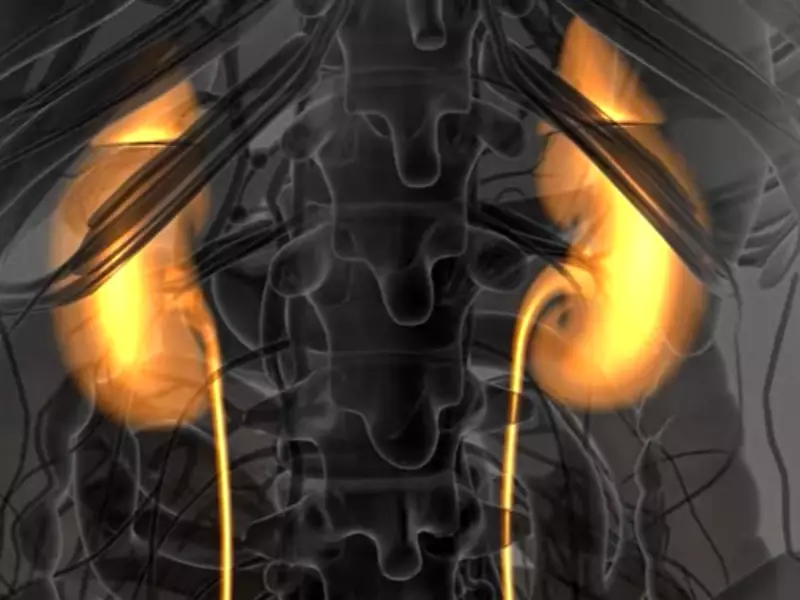The interplay between creatinine levels and thyroid function is a topic of significant medical interest, revealing much about the body’s complex internal regulation. Creatinine, a waste product generated from muscle metabolism, is an essential marker for kidney health. Simultaneously, the thyroid gland plays a pivotal role in regulating metabolic processes, including how the body uses energy. The relationship between these two indicators can provide critical insights into overall health and potential disorders.
Elevated creatinine levels may indicate kidney dysfunction, whereas altered thyroid hormone levels can suggest thyroid disorders. The relationship between the thyroid and creatinine involves the thyroid’s influence on kidney function. A healthy thyroid contributes to maintaining normal creatinine levels by ensuring efficient kidney function. Conversely, thyroid disorders can lead to abnormal creatinine levels, signaling potential health issues.
Understanding the connection between creatinine and thyroid function is crucial for diagnosing and managing conditions affecting the kidneys and thyroid gland. Both organs are integral to the body’s metabolic processes, and imbalances in one can affect the other’s functioning. This relationship underscores the importance of holistic approaches in medical diagnostics and treatment, considering how interdependent bodily systems can impact overall health.

Creatinine Basics
What is Creatinine?
Creatinine is a waste product produced from the normal wear and tear of muscles in the body. Every day, our muscles use a compound called creatine for energy. After its use, creatine breaks down into creatinine, which the blood carries to the kidneys to filter out and excrete in urine. This process is constant and occurs in all healthy individuals, making creatinine levels a useful indicator of kidney function.
Creatinine Levels
Normal Range
The normal range for creatinine in the blood varies by age, sex, and muscle mass, but generally, for most adults, it falls between 0.9 to 1.3 mg/dL for men and 0.6 to 1.1 mg/dL for women. It’s crucial to understand that these values can slightly differ depending on the laboratory conducting the test.
Factors Affecting Levels
Several factors can influence creatinine levels, including:
- Muscle mass: Individuals with more muscle mass typically have higher creatinine levels.
- Age: Kidney function and creatinine production can decrease with age.
- Diet: A diet high in red meat can increase creatinine levels.
- Medications: Certain drugs can affect kidney function and, by extension, creatinine levels.
- Exercise: Intense exercise can temporarily raise creatinine levels due to increased muscle breakdown.
Thyroid Function Overview
Thyroid Hormones
The thyroid gland produces two main hormones: thyroxine (T4) and triiodothyronine (T3). These hormones play vital roles in regulating metabolism, energy generation, and the body’s use of other hormones and vitamins.
Types and Their Roles
- T4: Acts as a precursor to T3, meaning it needs to be converted into T3 to be active.
- T3: The active hormone that influences the activity of all the cells and tissues in the body.
Thyroid Disorders
Thyroid disorders can be divided mainly into two categories: hypothyroidism and hyperthyroidism.
Hypothyroidism vs. Hyperthyroidism
- Hypothyroidism is characterized by an underactive thyroid gland that does not produce enough thyroid hormones. This can lead to fatigue, weight gain, and cold intolerance.
- Hyperthyroidism occurs when the thyroid gland is overactive and produces too much thyroid hormone, leading to symptoms like weight loss, high blood pressure, and heat intolerance.
Symptoms and Common Causes
- Hypothyroidism: Symptoms include fatigue, weight gain, cold sensitivity, and depression. Causes can include autoimmune disease, radiation therapy, and certain medications.
- Hyperthyroidism: Symptoms involve weight loss, anxiety, increased sweating, and tremors. Common causes are Graves’ disease, thyroid nodules, and excessive iodine intake.
The Link Between Thyroid and Creatinine
Thyroid Impact on Kidneys
Thyroid hormones have a significant impact on renal function, influencing kidney size, blood flow, and the filtration rate. An imbalance in thyroid hormones can lead to changes in creatinine levels and overall kidney health.
Studies and Research
Numerous studies have shown a correlation between thyroid dysfunction and altered creatinine levels. For instance, hypothyroidism can lead to decreased kidney function, resulting in higher creatinine levels, while hyperthyroidism can increase kidney function, potentially lowering creatinine levels.
Diagnosing Thyroid and Kidney Health
Tests for Thyroid Function
To assess thyroid function, healthcare providers commonly use tests measuring:
- Thyroid-stimulating hormone (TSH): Indicates how well the thyroid is responding to the body’s needs.
- Free T3 and Free T4: Measure the levels of active thyroid hormones in the bloodstream.
Creatinine Tests
Evaluating kidney health involves measuring creatinine levels through:
- Serum creatinine test: A blood test that measures the amount of creatinine in the blood.
- Creatinine clearance test: Involves both a blood test and a urine test over 24 hours to assess how well creatinine is being cleared from the body.

Effects of Thyroid Dysfunction on Creatinine Levels
Hypothyroidism and Creatinine
Impact on Kidney Function and Creatinine Levels
Hypothyroidism can significantly impact kidney function, leading to changes in creatinine levels. The reduced level of thyroid hormones in hypothyroidism slows down the body’s metabolic processes, including the rate at which the kidneys filter blood. This decrease in kidney function can cause an accumulation of creatinine in the blood, resulting in higher serum creatinine levels. Symptoms of reduced kidney function might not be immediate but can develop over time, emphasizing the need for regular monitoring in patients with thyroid dysfunction.
Hyperthyroidism and Creatinine
How It Affects Renal Function and Creatinine
Conversely, hyperthyroidism can lead to an increase in kidney function. The elevated levels of thyroid hormones can cause the kidneys to filter blood at a faster rate than normal, which may lead to lower levels of creatinine in the blood. While this might seem beneficial, it can strain the kidneys over time. Patients with hyperthyroidism often experience an increase in urine output, a direct result of increased kidney filtration, which can lead to dehydration if fluid intake is not adequately increased.
Managing Thyroid-Related Creatinine Issues
Lifestyle Adjustments
Diet, Exercise, and Hydration
Managing thyroid-related creatinine issues involves making several lifestyle adjustments. A balanced diet rich in fruits, vegetables, and lean proteins can support thyroid and kidney health. Exercise, while being cautious of overexertion, can help maintain a healthy weight and support metabolic processes. Adequate hydration is crucial, especially in hyperthyroidism, to compensate for increased urine output and prevent dehydration.
Medical Interventions
Medication and Treatment Options for Thyroid Health
Medical interventions for thyroid dysfunction typically involve medication to normalize thyroid hormone levels. For hypothyroidism, synthetic thyroid hormone replacement (e.g., levothyroxine) is commonly prescribed. In contrast, hyperthyroidism may be treated with medications that reduce thyroid hormone production or surgery in severe cases. It’s important to work closely with a healthcare provider to monitor the impact of treatment on both thyroid function and kidney health, adjusting the treatment plan as necessary.
Monitoring and Follow-Up
Regular Testing and Doctor Consultations
Regular monitoring is essential for patients with thyroid dysfunction, particularly those with concurrent changes in creatinine levels. This includes routine blood tests to measure TSH, T3, T4, and serum creatinine levels. Follow-up consultations with a healthcare provider can help track the effectiveness of treatment, make necessary adjustments, and manage any complications. Patients should be proactive in scheduling these appointments and discussing any changes in symptoms.
Case Studies
Real-Life Impacts
Stories of Patients Managing Both Conditions
The real-life impact of managing both thyroid dysfunction and creatinine level changes is highlighted through patient stories. One case involved a middle-aged woman diagnosed with hypothyroidism who experienced elevated creatinine levels. Through a combination of levothyroxine therapy and lifestyle adjustments, she was able to normalize her thyroid function, which gradually improved her kidney function and lowered her creatinine levels.
Another case featured a young man with hyperthyroidism who faced dehydration challenges due to increased urine output. With the help of anti-thyroid medication and a focus on increased fluid intake, he managed to stabilize his thyroid function and maintain healthy creatinine levels.
Lessons Learned
Insights and Takeaways
These case studies provide valuable insights into the interconnected nature of thyroid and kidney health. They emphasize the importance of a comprehensive approach to treatment, including medication, lifestyle adjustments, and regular monitoring. Key takeaways include the need for patients to:
- Stay informed about their conditions and treatment options.
- Maintain open communication with healthcare providers.
- Be vigilant about changes in symptoms and follow recommended treatment plans closely.
Frequently Asked Questions
How Does the Thyroid Affect Creatinine Levels?
The thyroid influences creatinine levels through its effect on kidney function. Thyroid hormones regulate metabolism, which includes how the kidneys filter and eliminate waste products. Hypothyroidism can reduce kidney function, leading to higher creatinine levels, while hyperthyroidism can increase kidney function, potentially lowering creatinine levels.
Can Thyroid Medication Alter Creatinine Levels?
Yes, thyroid medication can alter creatinine levels. Medications used to treat thyroid disorders adjust hormone levels, impacting kidney function. Effective treatment of hypothyroidism, for example, can improve kidney function and lower creatinine levels. Conversely, if thyroid medication leads to hyperthyroidism, it might increase kidney function and decrease creatinine levels.
Is It Common for People with Thyroid Issues to Have Abnormal Creatinine Levels?
It is not uncommon for people with thyroid issues to have abnormal creatinine levels due to the thyroid’s role in metabolic regulation, including kidney function. However, the presence and extent of abnormal creatinine levels can vary based on the type and severity of the thyroid disorder, individual health conditions, and lifestyle factors.
What Should I Do If I Have Both High Creatinine and Thyroid Levels?
If you have both high creatinine and thyroid levels, it’s crucial to consult a healthcare professional. This condition may indicate a more complex health issue requiring a comprehensive evaluation. Treatment might involve addressing both the thyroid disorder and kidney function to restore balance and ensure overall health.
Conclusion
The intricate relationship between creatinine levels and thyroid function highlights the importance of an integrated approach to health monitoring and management. By understanding how these two markers interact, healthcare professionals can provide more accurate diagnoses and tailored treatment plans. This not only enhances patient care but also emphasizes the significance of considering the body as an interconnected system, where the state of one part can profoundly affect the whole.
Ensuring regular health checks and being aware of how different aspects of our health interrelate is crucial for maintaining wellbeing. This holistic perspective encourages proactive health management, enabling individuals to lead healthier, more balanced lives. By recognizing the links between our thyroid and kidneys, we can better understand our bodies and take steps towards optimal health.
